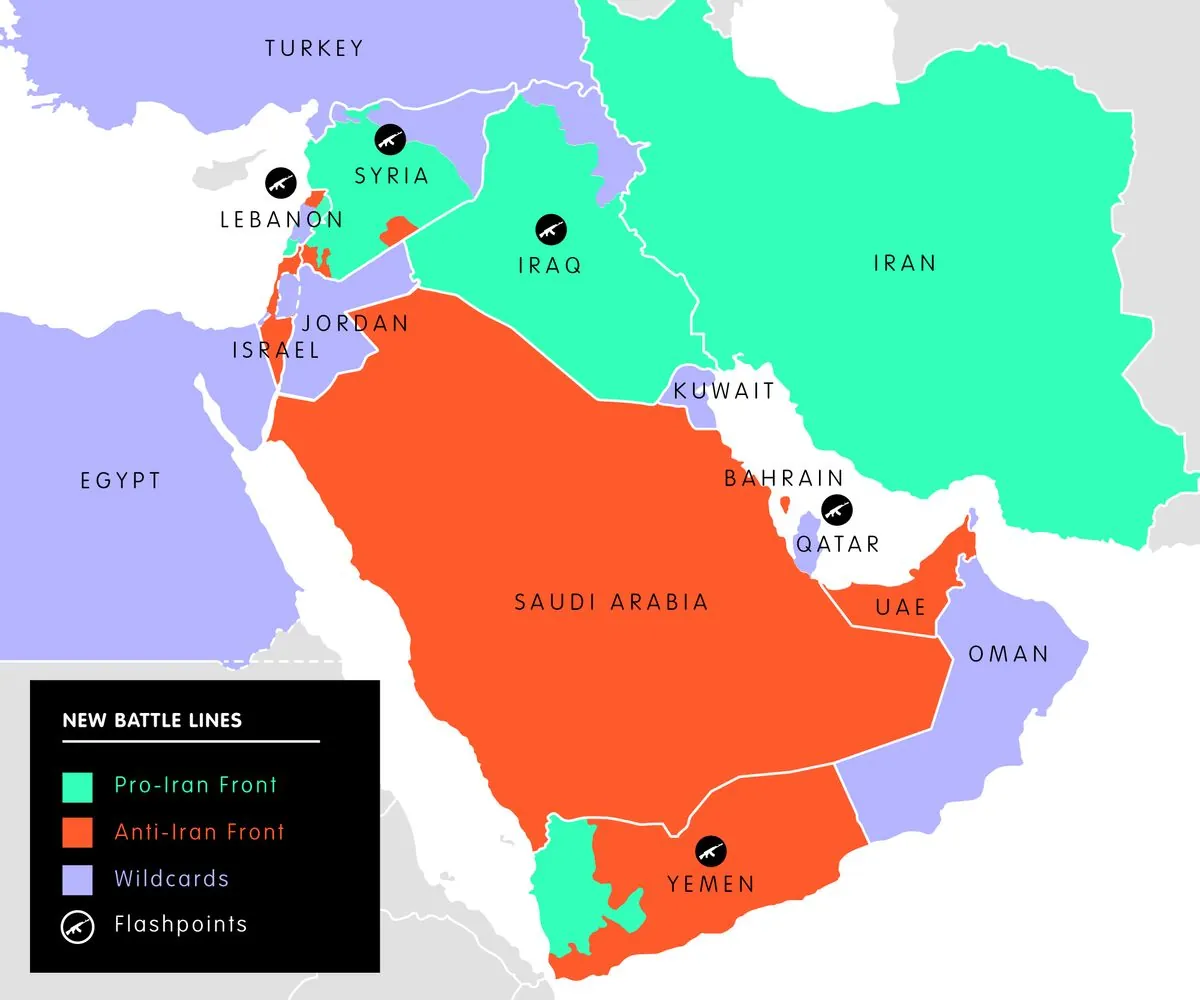The recent Israeli strikes on Fuad Shukr in Beirut and Ismail Haniyeh in Tehran have brought renewed attention to Iran's "axis of resistance," a network of allied groups across the Middle East. This alliance, which has evolved since its inception in the 1950s, now poses significant challenges to regional stability and US interests.
Iran, leading this coalition since its 1979 revolution, supports various groups including Hezbollah, Hamas, and Shiite militias in Iraq and Syria. These alliances are driven by shared anti-Western sentiments and strategic interests, with each member having its own motivations and capabilities.
- Hezbollah in Lebanon
- Houthis in Yemen
- Hamas in Gaza
- Iraqi Shiite militias
- Syrian government
The Houthis in Yemen, for instance, have recently gained attention for their attacks on shipping in the Red Sea. While Iran supports them, the Houthis' actions are largely driven by their own agenda, including opposition to US support for Saudi Arabia and the UAE in Yemen's conflict.
Lebanese Hezbollah, often considered the most powerful non-state actor in the region, serves as a deterrent against potential Israeli strikes on Iran. However, its deep involvement in Lebanese politics constrains its actions.
In Iraq, groups like Kataib Hezbollah pose a threat to US forces, as evidenced by the recent attack on Tower 22. These militias, deeply entrenched in Iraqi society, present a complex challenge for US policy.
Hamas, despite its alliance with Iran, has shown a tendency to act independently, as seen in the October 7, 2023 attack on Israel, which reportedly caught Tehran by surprise.
The strategic implications for the United States are significant. While Iran's position is not enviable, the potential for escalation, particularly along the Lebanese-Israeli border, is a major concern. The Biden administration faces the challenge of managing these risks while dealing with an increasingly assertive Israel.
"We will not tolerate any threats to our security, whether from Gaza, Lebanon, or elsewhere. Our response will be swift and decisive."
As tensions rise, the need for diplomatic efforts to prevent a catastrophic regional war becomes increasingly urgent. The US must work with regional partners to urge restraint on all sides, recognizing the complex web of alliances and motivations that drive the "axis of resistance."
